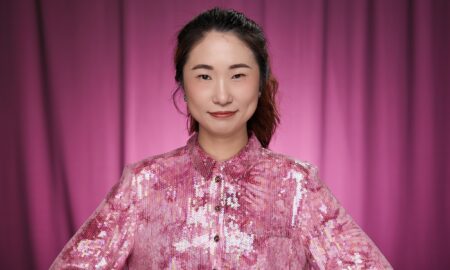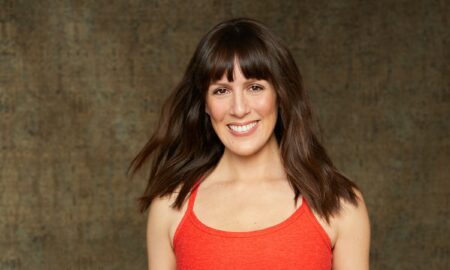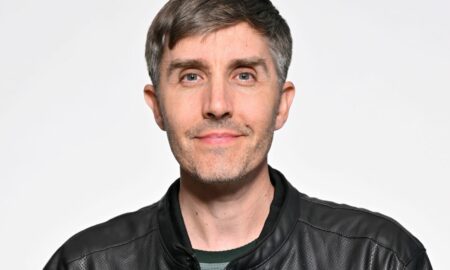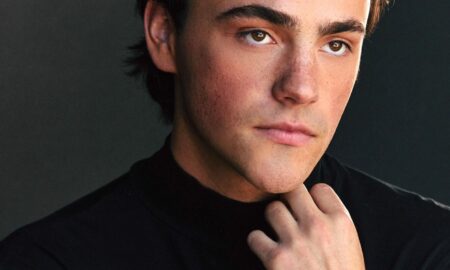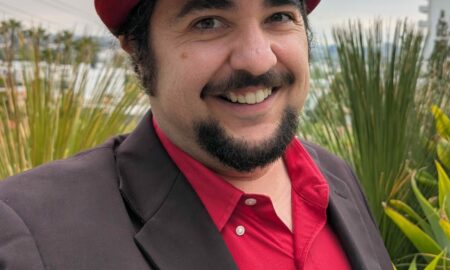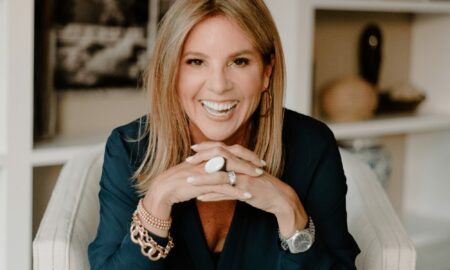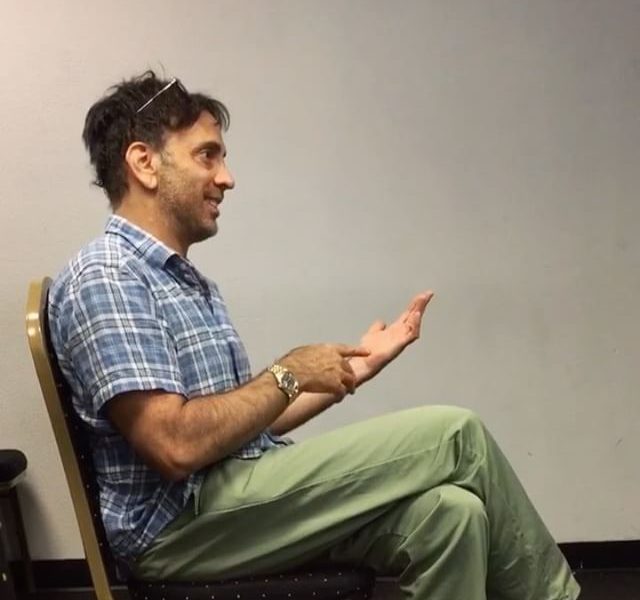
Today we’d like to introduce you to Brad Heller.
Thanks for sharing your story with us Brad. So, let’s start at the beginning and we can move on from there.
Believe it or not, before I was an actor, I was pre-med at UC San Diego. Yep, was planning on being a brain surgeon, of all things. I always was fascinated with the brain, how people think, behave, etc… And, as I came from a family where my father is a retired surgeon and was raised in an environment where being a lawyer or a doctor was what seemed to be the logical choice for me, that was what I intended on doing. I felt this was what I “should” do. The idea of doing a career I would have fun doing, really wasn’t part of the equation at the time. So, I thought that this was going to be my journey…to be a doctor as my career choice. But, unfortunately, there was one big problem with this…I always loathed the sciences and hospitals, too! Yep. But I put up with it and managed to get accepted to the pre-med program at UCSD. I went there and managed to get through my classes. They certainly weren’t fun for me, but I managed to hang in there and pull them off. So, while there, to relax and enjoy myself, I played my guitar and sang…a hobby I had enjoyed doing since being a young boy. This was always enjoyable, plus, it also was a fun way to meet girls, so…
Anyways, while there I happened upon a talent show at the University and auditioned. Well, the talent show was fun, but the director, Claire, approached me to see if I would be interested in auditioning for a Musical that was being put on by her at the University. A small undergrad production. At the time, I had only seen musicals on tv, never in person, and had never acted.
But, what the hell, it seemed fun…certainly a lot more fun than what my other fellow students were doing in the afternoons at their chemistry club meetings, that’s for sure. So, I just winged it. I was able to sing my song, but, unfortunately had no clue what I was doing when they asked me to act a cold reading scene and dance, too! So, for the dancing, I was a mess. I remember clearly when they asked us to do a dance they taught us, I was trying to hide behind the other actors who were dancing in front of me. It was ridiculous. Especially when they separated us and had us dance in small groups of four. Hard to hide behind 3 people and not look like a fool.
But, for the acting, it was fun. I had no technique, so I just pretended, basically…just like when I was a kid playing cops and robbers. I just messed around, had a blast, and managed to get one of the lead roles for the musical…without any clue what I was doing. They basically needed an actor who could be funny…and he didn’t need to dance. Perfect! Now, I must admit, this musical didn’t seem to be so focused on good acting, but simply being funny and charming, and being able to sing. I did have to act some scenes, but truth and believability didn’t seem to be top priority. Still, I did get the role, and got some great reviews once it came out. I was shocked. I was killing myself trying to keep up my GPA in pre-med, in a field I didn’t enjoy, and here was a completely different world I had no training in, and really excelled at. So, I thought, “Hmmm… this might be cool. If I have no training and am doing this well, I wonder what I could do with training.” Time to do some research on this new field.
So, UCSD has a world class undergrad program for Theater, and I went into their department and asked them there if they knew of any good undergrad schools for theater. There are a few world class programs including Julliard, North Carolina School for the arts, NYU, and Boston University School for The Arts. Well, as it was very late in the school year at the time, all the schools had closed their enrollment period. Save for one. Boston University. I contacted them, and they told me that if I was up for it, I could fly out there and audition for them at this late notice, and if they liked me, they would accept me into their program. So, I did just that. I auditioned, and go in. Amazing I thought at the time! I had all my stuff in San Diego packed up and sent out to Boston while I lived in an apartment and looked for a place to live.
Well, having no experience as an actor at this program, was a blessing and a curse. It was a blessing because I was an open book ready to absorb everything. On the other hand, it was a curse because unlike many of the other actors there who had been in drama for many years before attending had already built some type of foundation for their craft. Me, on the other hand, knew nothing. And, while training there, I ended up having a bit of a tough time with acting. One, I was given just a bunch of random different tools from the teachers there and was told things like, “Just use whatever works for you.” For me, I had no idea what worked for me. In fact, at that time, I really didn’t even understand what acting was supposed to feel like or be when done correctly. I was like this feather blowing in the wind trying to figure out some pathway.
Furthermore, at the time, I discovered I had bad anxiety every time I performed. It was bad stage fright. Perhaps it had to do with not having a reliable technique, perhaps it was something else. Either way, upon graduating from there, I found that acting had lost its fun, was too complex and confusing, mentally draining. Acting felt a lot more fun before I ever learned any of the tools at the university. So, unfortunately, I figured acting was just not in the deck for me, and because I had directed a few plays at the university with some success, I thought I was going to be a director and a writer.
Still, the truth was, if I am honest, even while directing the plays, I still had this strong passion to be up there on the stage acting the roles myself. I just figured I was not able to do it and have fun. Directing seemed like a reasonable second choice.
So, I moved to Los Angeles. I was in production en route to be a director, and I snuck onto a lot to get a job in production as a P.A. And somebody who happened to be in an office there. We started chatting and he, out of the blue, told me about this great book written by a legendary director and acting teacher named Don Richardson. He wrote a book called Acting without Agony: An Alternative to the Method. And I was like, “Acting without agony? Is that even possible?”
Originally, I was thinking that this must be some quick fly-by-night bullshit technique. It wasn’t! This was written by a guy who directed over 800 television shows – many of which I watched as a childlike Get Smart, One Day at a Time, Bonanza, to name a few…, and he taught Academy Award winning actors like Grace Kelly and Spencer Tracy. So, I got the book, I read it, I loved it… It changed my life, and approach to acting completely. I found myself so intrigued with him that I started studying acting again, but with him directly. I started to really excel in his class, and then was invited into Don Richardson’s master class. Finally, once again acting, suddenly, became fun again, plus it was extremely effective, and I was like, “Wow, I can actually do this.”
Acting was no longer confusing, therapy, emotional recall to evoke emotions…having to delve into all of those things in the back of my brain that happened to me when I was a kid, good and bad, and relying on those memories in order to act. It was a completely different way of approaching the craft which was a lot more tangible and structured, too, and I didn’t feel like the quality of my acting was at the mercy of the wind. So, now I had a great technique. B
ut…there was still one issue I was dealing with though. Even though I had this great technique at my fingertips, I found that I was still hit with a tremendous amount of anxiety every time I went on stage. And this wasn’t the normal type of anxiety. It felt exaggerated. This wasn’t fun. Still, at least I had a great technique I could use. However, something still felt like it was missing.
In any case, I studied with Don Richardson for many years, and I was so intrigued with his technique that I became friends with him. I used to drive him to class and pick his brain when we would be on those drives and actually tape-recorded his classes because I didn’t know how long he was going to be alive because he was very old when I started studying with him.
Even while battling the stage fright issue, I started booking jobs from there, got an agent, and now was on the very real path of being a professional actor. I ended up studying with Don Richardson for many years up until he passed away. Now, I had a wonderful foundation of his lessons, but I still had that nagging stage fright issue. I would go to auditions still leaving with regret…feeling like if I didn’t have that anxiety, I would have done a better job. Brutal. The reality was with those anxieties and fears of performing, it didn’t matter what technique I had, my brain was so frozen, it wasn’t able to process any technique to its fullest potential.
I needed to solve this problem if I wanted to master this craft. So, I started doing research and learning more about anxiety and fear and how it works. And through a series of events, discovered Dr. Eda Gorbis, who is an expert on anxieties and fears. She had a wonderful program located in Westwood, CA, and founded the Westwood Institute, which helps people with many issues, one of them being fear and anxiety, and learning how to deal with these issues. It was incredible. I went through a program with her that taught me all about anxiety, and how to cope with it, how to deal with it, how to embrace it rather than fight it. Through her training, I realized the way I was approaching stage anxiety couldn’t have been more wrong. I was trying to push away anxiety, run from it. For example, what I was doing before is before I would go on stage or an audition, in my brain, I found myself trying to continually convince myself that the performance was going to be fine, that I was going to be okay, and everything was going to be good. And of course, I soon as I would stop my performance, there would be a random thought or a random distraction, and it would throw me off.
Dr. Gorbis taught me a completely different approach. It was a matter of embracing the fact that it may be horrible and learning how to deal with that kind of anxiety and embracing it. And rather than going for a feeling of clarity, calm, and wanting things to be perfect, I now was learning how to perform in an imperfect. I was learning how to act at my potential WITH discomfort and distractions rather than trying to avoid them. It was crazy, but the new way I was rehearsing was, for example, practicing my auditions at home with the television on, so that it bothered me, or having people being able to hear me…rehearsing with the windows open, enough to distress me. This was opposite to the old way of rehearsing where I was shutting the windows and creating a “safe” space to practice. It made so much sense! I mean, when I am auditioning, I am NEVER in a comfortable space, so why rehearse this way? Now, I was practicing and habituating this discomfort, so that when I went to an audition, I had already been exposed to these things, so it didn’t throw me anymore when I was hit with something that bothered me. That was really what completely revamped me as an actor.
As much as Don Richardson was an amazing acting teacher, it didn’t matter how great he was, I until I solved this issue, it wasn’t going to happen. Between what I learned from Don Richardson, Dr. Eda Gorbis, some incredible directors, actors, and through life experience, The Heller Approach was created. A new simple and structured way of working on the craft of acting that is reliable and deals with the anxieties we face as actors. It is a wonderful combination that I use daily as an actor and teacher today. At this point, I have taught acting for years at UCLA and have had my own school open for decades, and taught thousands of students.
I have taught some students for nearly 20 years. From Judge Reinhold to Mary Gilbert, to David A.R. White, and Masi Oka, my students have successfully created acting careers, and constantly keep their acting tools sharp with The Heller Approach. They all understand what Robert Dinero says when he mentions that when we aren’t working as actors, we need to be in class. It’s built on the same principles that we will find in sports. There’s a preparation phase, then there’s the executing phase. Very different tools. The preparation is when we do the breathing, saying the name of an emotion. The executing is a very different thing when we trust all the work, and we just play.
Acting is like a muscle we must always workout. It’s like going to the gym. When we don’t practice, we get rusty, the same way we get fat when we don’t exercise. Therefore, so many of my students have booked series regular, recurring roles, guest starring roles, and co-starring roles on hit shows like “Greys Anatomy”, “Extant”, “Heroes”, “Anger Management”, “Two and A Half Men”, “Mike and Molly”, etc.…, starring roles in major Studio Films and Broadway theatre productions, and hundreds of commercials. They work regularly because they practice their craft daily.
We’re always bombarded by how great it is to pursue your passion, etc. – but we’ve spoken with enough people to know that it’s not always easy. Overall, would you say things have been easy for you?
For me, the career of acting wasn’t an easy pathway navigating through. In fact, I found that this journey was quite a struggle. It has been completely worth it, but, a struggle indeed to finally get here. First, as mentioned earlier, I originally thought I was going to be a doctor, and it took me awhile to find my way to acting. I mean thinking that your career choice is set…to be entering the field of medicine, only to realize that you have been completely wrong the whole time, … this can be quite jarring to say the least.
Furthermore, as my first experience of acting was in a school musical, and I thought this was what acting was supposed to feel like – just being funny and charming in the character I was playing… I discovered that this was COMPLETELY wrong. Though I got some good reviews for my work in the musical, these were words that mentioned things having little to do with honesty or truth. If I wanted to be an actor, I really needed to find out what acting REALLY is. I needed to find out what makes people respect the best actors…what makes them great. Let me digress for a moment…I mean a lot of people, you’ll ask them, “Who’s your favorite actor?” Somebody may say Anthony Hopkins, for example. If you were to ask them, “Well, why?” Frequently, people will say something like, “Well, he’s cool,” or, “I just like him. I don’t know why. I just like watching him.”
So, if we go deeper into what’s really appealing about those actors deemed as “the best” or “brilliant”, the ones that we really like, I believe there are many reasons people fall in love with these actors. Well, the first reason seems so obvious, but many don’t remember it. The most important thing for actors is to be honest and truthful in their work. The audience needs this to connect to the character you are playing. Still, as important as this is, it’s not everything. One of the other reasons many people like watching certain actors is since when you watch a great actor work in a scene, they are filled with a tremendous amount of emotion… a seeming electricity in their eyes and from every pore in their body. Let’s say that this “electricity” is emanating from every pore in their body. For example, when Hannibal Lecter in Silence of the Lambs is saying, “Hello, Clarice,” you can feel the heat and energy from his eyes. So, if we agree that aside from being honest and real, one of the things that makes an actor fascinating to watch is emotion, then one of the things I struggled with was…, “Well, how do I get that?” I mean, I wanted to be the best actor I could be, but I also needed a way to get to this emotional place to be a great actor. I had no idea how to get there. There are many, many tools in acting, and we must learn them all. However, learning how to evoke emotion – this is a HUGE one. If we have emotion in our characters, it makes them ALIVE. If we don’t, they come off as flat and devoid of any feeling. So, as well as the other tools I needed to learn, I needed to learn how to evoke emotion in a reliable and effective way if I wanted to be a great actor. Well, one of the ways some actors get there emotionally, in an unhealthy way – in my humble opinion, is through learning how to evoke emotion through delving into our own history and personal events that shaped us growing up.
For example, if I’m playing a character who’s very angry, and I am a ‘method’ actor, I would find something in my own life that makes me angry. So, I would think about that thing, and use it as a trigger to launch me into the scene. This for me was a very tough thing. First, did I want to reflect on this every time I play this role? Of course not. Also, when I’m on a set, if I’m using a personal experience for me, Brad, I’m not playing Brad. I’m playing a different character. So sometimes, it can almost feel like you’re schizophrenic when you’re acting…bouncing back and forth between the character and me. This was another reason I didn’t like this way of working. Who am I? Am I the character? Am I Brad? I’m bouncing back and forth. And, the events that I’m using to launch into the pool of the scene, the actual event of the Brad life, doesn’t always fit the scene, like the amount of anger, for example, I have in my own life, from my own personal history, may not work for the scene. Perhaps it may be too much, or too little for the scene. It felt to me like taking a piece of a puzzle and putting it into a different puzzle. This was one of the reasons acting had lost its’ joy for me.
Don Richardson changed this by introducing me to a completely different way of evoking emotion. You see, we are so familiar with emotion that we don’t have to delve into a personal experience to get there. Strange as it sounds, we can feel something by saying the name of an emotion aloud. I know that sounds crazy…but it works! For example, if I just say the word “Joy”, I smile. I can feel a little tingle in my face. If I say the word “Anxiety”, I can feel a little tingle in my stomach or in my chest. It’s not enough to carry me through a scene, but it’s enough to have a nice little kernel to build off. This is the beginning of the process of evoking emotion at our school.
Next, what we do is we take that feeling, and we combine it the physiological thing that happens in us when we have a tremendous amount of emotion. What is that? That’s for example, when you’re very emotional, whether it’s anger or anxiety or boredom. There are things that happen in our body. One, we get a little bit lightheaded. Two, our heart rate goes up. Three, sometimes we will sweat a little bit. If you think about the times you were the most happy, angry, or even the most bored, you will find that this is what happens in your body. So, what we do is we get ourselves to that state through breathing heavy and saying the name of the emotion, to get ourselves charged into the scene. And we do that before we’ve exercised the scene on set. We do that at home to teach our body to have those physiological things happen, so that when we just execute the scene, it’s built on the same principles of muscle memory, we’ll call it lightheadedness memory.
This works especially well in the fast-paced environment while working in film and television. If I prepare using an emotion of anger and I’m on set, and a director says to me, “I don’t want him angry. I want him nervous.” I cannot say, “Excuse me, I’ve got to go check out my diary and figure out something that makes me nervous when I was 10.” We can build our brain and our body an emotional keyboard that we can tap into at any time by simply saying the name of the emotion and doing a quick breathing exercise. Keep in mind, as crazy as this sounds…it was a technique used by Academy Award winning actors like Spencer Tracy and Grace Kelly.
As mentioned earlier, acting was fun BEFORE I had any technique, and then after getting some bad training, had become not fun and stressful…so much so that I stopped it completely for a while. It was too complex and confusing. I found myself as being an over-thinker. And so, I overthought it into the ground. I gave up acting. I thought I was going to be a director and a writer. Just finding my career choice was very difficult, and then, once finding it, finding a technique that could work for me, this was also very tough to find.
Noe, having found this way of working…a reliable and mentally healthy way of working, very much helped me to overcome the struggle I was facing in acting. It really helped me to find the joy of acting again. This was a huge struggle to overcome in acting. But it wasn’t the last one to pursue this career. Still there was lastly, the huge struggle of learning how to deal with very bad stage fright and performance anxiety every time I got on stage – this was a terrible battle I needed to face.
However, through hard work, persistence, and following my dreams, I ended up getting through to the other side on this front and learned amazing tools to apply to anxiety and stress when performing. These tools are a big part of The Heller Approach, and is one of the things that makes this technique especially helpful to those actors dealing with anxiety when they perform.
Thus, I found light at the end of the tunnel through tremendous effort and difficulty, and it has completely been worth it. After a lot of research and hard work, as described earlier, I found a technique that really worked, and even decades later keep acting fun and very effective. Thank God! There are obviously many other tools in The Heller Approach technique, but having a reliable way of evoking emotion, understanding what great acting is, and learning how to deal with anxiety…these are some of the main tools used in the technique. This helped me tremendously to overcome some of the struggles I was facing in this career.
You will hear people say, “It’s so hard being an actor…are you prepared to wait tables to do it?” My response has always been that it would be way easier to wait tables and enjoy my career, rather than being well off financially and miserable filled with regrets and bitterness. Seems obvious to me, but some would beg to differ.
We’d love to hear more about your business.
Our school is known for many things. We are known for helping actors with their ability to analyze and interpret scenes, as well as helping the with their audition skills. We also help with Scene Study and understanding casting, and the kinds of parts you will probably be playing. We really help actors to know how to play their casting type. I mean, if you look a certain way, and cannot play that ‘type’…well, you won’t get the role. We also help actors who deal with stage fright and anxiety, as described earlier. Another huge factor in our school is that we focus a lot of energy on the Business of acting. How to get yourself out there. There is nothing worse than wasted talent, once said by Robert Diner in a film. So true. No matter how good of an actor you are, if nobody sees you, who cares. Your ability to act well in the privacy of your home isn’t really acting, is it? A huge part of acting is also being out there and getting auditions and booking roles. We give our actors a marketing strategy and business plan to help them stay focus and accomplish their goals in a timely manner.
Our school has been around for nearly 25 years. We are one of the few schools out there that has a technique which is structured, fun, and reliable. We are not a ‘method’ class, nor are we a class that is therapy where we all get into a group and talk about what happened to us when we were kids. Acting should be fun! And, we make sure it is just that. Also, we are quite selective when choosing our students in our classes. We want to be sure that our students are working with good quality people. Those who are not are asked to leave. So, those that are still here, well they are top notch people whom you can trust and will enjoy spending time with. Another thing we are known for is that we are the only school I am aware of that really delves into teaching actors how to deal with the pressures of auditioning, as well as anxiety we deal with as actors. I teach specific tools to help actors learn how to embrace fear rather than run from it. Our actors also are taught how to work under any condition. I am not about teaching actors to work in a very comfortable place with no distractions. Life in acting is NEVER this way. So, as actors, we need to learn how to come thru when there are things that distract us. I teach my actors this. It helps them so much when dealing with unpredictable casting directors and offices where there is always a distraction. We are also known for being the only school in LA that teaches the principles found in Don Richardson’s book, as taught by him directly. I was taught personally by him, and it’s much different having trained with him, to learn the tools this way, rather than just by reading his book. As one mentored by him directly, I pass on these tools to my students daily.
Another big thing we are known for is being one of the first acting schools in the USA to teach acting classes via Skype on Webcam. This is a large part of our business today. Currently, we have taught acting on Skype to over 20 different countries to actors all around the globe. In one day, I have taught different students in China, Venezuela, Bahrain, and England. It’s incredible. The wave of technology has now allowed any actor to get world class training without even needing to leave their living room. They are no longer at the mercy of their local drama teacher at their community theater company. We are also known as being one of the ‘go to’ acting schools for some of the best talent agents and managers as well as modeling agencies who want their models to learn how to act. We really do get the cream of the crop here at The Heller Approach, as well as new actors who have never acted before, and want to see if this is something they would like to pursue as a career.
Another thing people like about our school is that all our teachers work as actors regularly. For example, I am currently acting on a sitcom entitled Malibu Dan (on Pureflix.com). We filmed 13 episodes last year and are slated to film another 10 in a few months. I think it’s important that my students know that their teacher is in the business today, dealing with the same issues they face daily. For me, I love teaching, and love acting. They fuel each other, are symbiotic, and make for a wonderful combination.
Another cool thing people like about our school is that we often compare acting training to the training one would face as a professional athlete, musician, or dancer. For those people who come from an avid sports background, for example, this technique is wonderful. We build on the same principles one deals with like preparation and execution, and their differences, as well as making sure actors understand the importance of practicing their craft daily. Acting is like a muscle that needs to be worked often. Just like going to the gym. If we don’t work out, we get fat. It’s the same with acting. If we don’t practice, we get rusty. Many actors, before coming to us, don’t train enough. I see actors all the time who only will train once they find out they have an audition. This is crazy. It’s like only training right before a boxing match and trying to cram workouts into a short period of time.
Frequently, we call Hollywood the Olympics of Acting. And it needs to be treated this way. Nearly everyone in the known universe who wants to act will come to pursue this career. It needs to be treated that way. The competition is fierce. And, as an Olympian must train daily to work the muscles, and actor must do the same. At our school, we give our actors specific tools to practice daily to help them improve their ability to act prepared scenes, as well as learn how to audition with material with limited time to prepare. Actors must know how to audition a 10-page scene when they are only given the scene one day in advance. This is a talent that needs to be learned and shaped. We do that at The Heller Approach.
Another reason people come to us is that they find us on YouTube on our channel (The Heller Approach), or on Instagram (The Heller Approach). We are told nearly every day how much they like our simple and structured way of working. Acting doesn’t have to be a mysterious nightmare of delving into the inner soul of our childhood. If acting was supposed to be this, I believe it would have died a thousand years ago. It’s supposed to be fun! We also are known for our ability to teach comedy. We teach actors and comics all the time how to break down jokes, deal with timing and punchlines with jokes, the principles of comedy (why people laugh), and how to put jokes into material while keeping the characters honest and believable. Playing comedy is one of the hardest styles to play effectively. We are known for teaching actors how to do this. Playing roles in comedies and keeping the characters believable in a way that the audience can still connect to the character is very tough. We teach this daily.
Pricing:
- Attend our Acting Class once a week on either Tuesday or Thursday and it’s 295/month
- Attend our Acting Class Two times a week on BOTH Tuesday and Thursday and it’s 495/month
- Schedule Private lessons with Brad Heller or One of our Wonderful Top Notch Coaches, Prices from 195 – 300/hour depending on the Instructor you choose. We teach lessons 7 days a week,
Contact Info:
- Address: The Heller Approach Professional Acting Studio
Ace Studios 2210 West. Olive Ave., #320 Burbank, CA 91506 - Website: www.TheHellerApproach.com
- Phone: 323.962.8077 (office), 310-503-8262 (cell/text)
- Email: [email protected]
- Instagram: https://www.instagram.com/thehellerapproach/
- Facebook: https://www.facebook.com/TheHellerApproach/
- Twitter: https://twitter.com/HellerApproach
- Yelp: https://www.yelp.com/biz/the-heller-approach-acting-studio-burbank
- Other: https://www.youtube.com/user/thehellerapproach





































Getting in touch: VoyageLA is built on recommendations from the community; it’s how we uncover hidden gems, so if you know someone who deserves recognition please let us know here.












